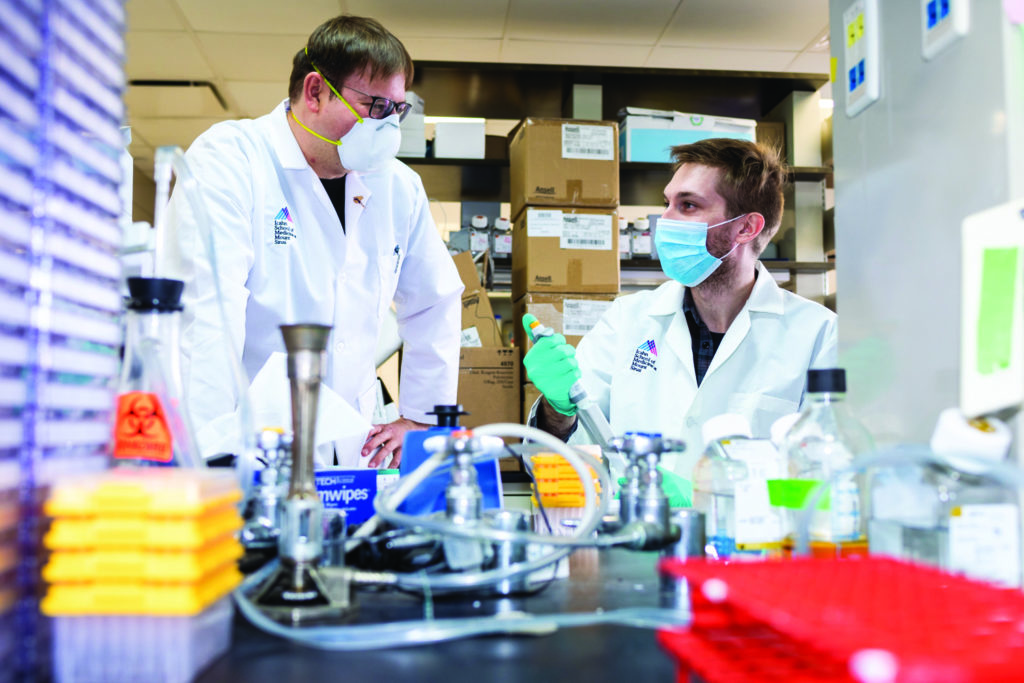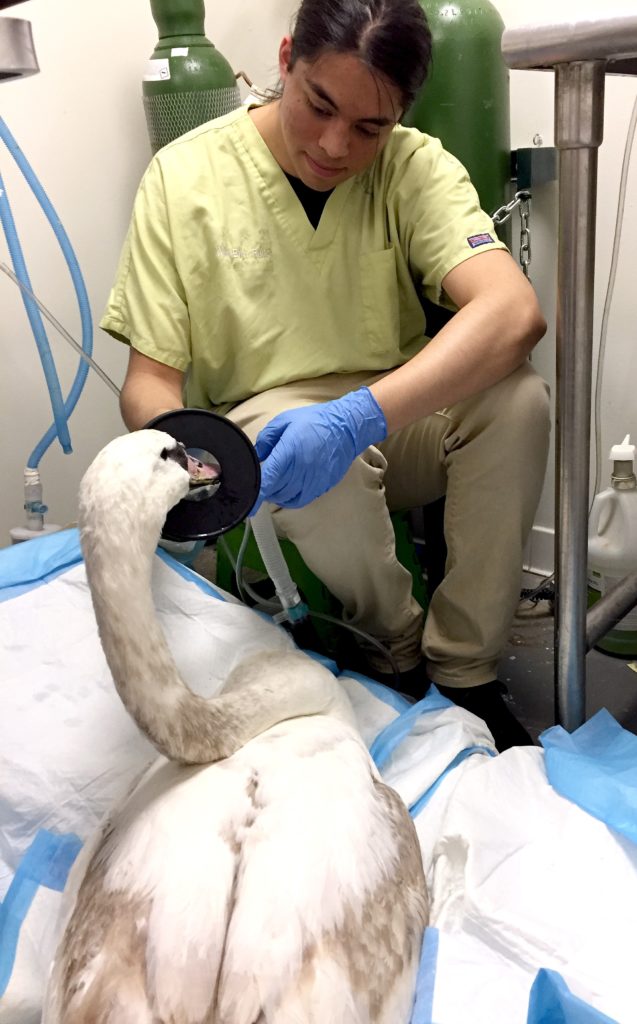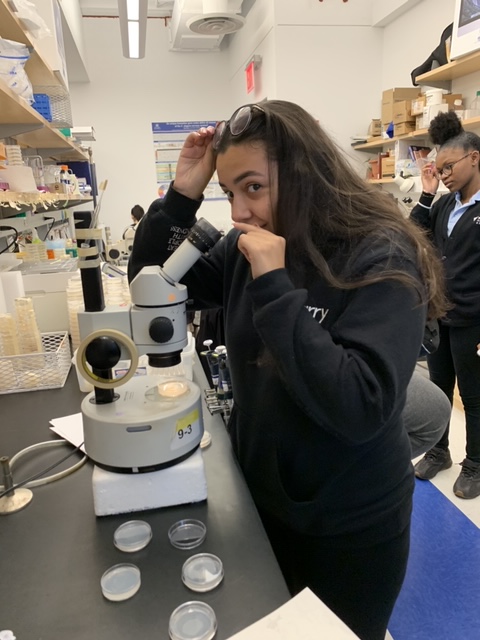Urban influenza virus surveillance research study begins in New York City with support from Flu Lab – and local high school students take center point
For immediate release, September 29, 2020
New York, New York High school students at BioBus, Inc. in New York City are a step ahead as they begin work to prepare for and prevent future pandemics. The New York City Virus Hunters, a new program of the nonprofit organization BioBus, is the first large-scale attempt to map an influenza virus in the Big Apple. Each year, hundreds of local students will engage in (safe) virus surveillance and conduct science research right in their neighborhoods.
BioBus is partnering with the Krammer Laboratory at the Icahn School of Medicine at Mount Sinai (ISMMS), a global leader in influenza virus research, and the Wild Bird Fund (WBF), New York City’s not-for-profit, wildlife rehabilitation center, to launch this novel and scalable community science initiative. Wild birds can disseminate infectious virus particles that spread avian diseases, especially avian influenza, and bird-to-bird and bird-to-human transmission are more likely in highly populated areas. Surveillance and species identification are vital to prepare for and prevent a possible future pandemic, and to identify the species of viruses that may be harmful to humans and other birds.

Project organizers from BioBus hope that the project will be replicated around the world as part of an international effort to map an influenza virus in birds in urban areas. “One thing that struck me during the COVID-19 pandemic are reports that students feel left out from the conversation and therefore, helpless. This is a unique opportunity for students to learn about virology and actively participate in research to make our city safer,” said Christine Marizzi, program Principal Investigator and Chief Scientist at BioBus. “In all my years of doing science outreach, I have never seen a more urgent need to partner with the local community to answer all their questions around viruses and generate crucial data on the spread of avian diseases in American cities.”
“I think this is an excellent program that brings together influenza virus surveillance, efficient science outreach, and training of the next generation of scientists, especially from communities underrepresented in science,” shared Professor Florian Krammer from Mount Sinai’s Department of Microbiology and a leading virologist.
Generously funded by The Flu Lab, the program will initially run over two years.
About BioBus
BioBus’s mission is to help minority, female, and low-income K – 12 and college students in New York City discover, explore, and pursue science. Through this work, we envision a world where all people have the opportunity to reach their full scientific potential. Since 2008, 300,000 students at more than 800 schools have discovered the thrill of scientific discovery, with many embarking on a path of scientific exploration and sustained pursuit. During the COVID-19 pandemic, the 22 scientists and staff at BioBus brought all programs online and have engaged over 4,000 students from elementary school through college in science from the safety of their homes.
About the Krammer Laboratory at Icahn School of Medicine at Mount Sinai
The Krammer laboratory studies cross-reactive antibody responses to the surface glycoproteins of antigenically variable RNA viruses. Our main focus is on influenza viruses, but we are also interested in antibody responses to coronaviruses, hantaviruses, filoviruses, and other emerging RNA viruses. Work done in the laboratory includes the expression and characterization of viral glycoproteins, generation of glycoprotein-directed monoclonal antibodies, and the characterization of the interaction between antibodies and surface glycoproteins; we are specifically interested in analyzing conserved epitopes and – through detailed studies – aim to elucidate the mechanisms by which these antibodies protect the host from viral infection and disease. The final goal is to translate these findings into novel vaccines and therapeutics.
About Wild Bird Fund
Wild Bird Fund is a state and federally licensed 501(c)(3) that cares for the injured, ill and orphaned wildlife of New York City. Medical care includes radiographs, diagnostic testing, surgery, medication, bandaging, splinting, physical therapy, feeding and sheltering, for as many as 7,000 animals a year. Our mission is twofold: to provide veterinary care and rehabilitation to native and migrant wildlife so that they can be released back into the wild, and to educate New Yorkers about the rich diversity and environmental needs of the city’s precious wildlife.
About The Flu Lab
Flu Lab’s mission is to fuel bold approaches to defeat influenza. We power transformative approaches to advance influenza research, promote open science principles, and explore new influenza solutions. To achieve this, Flu Lab seeks out high-impact opportunities, makes investments and grants, evaluates results, and provides opportunities for shared learnings. We support initiatives that range from big and bold efforts to smaller, highly creative programs. In response to the COVID-19 pandemic, Flu Lab is also supporting local and global efforts to strengthen detection, response, and mitigation efforts and protect vulnerable populations.
Contact information:
Christine Marizzi, Ph.D., BioBus Chief Scientist, christine@biobus.org

